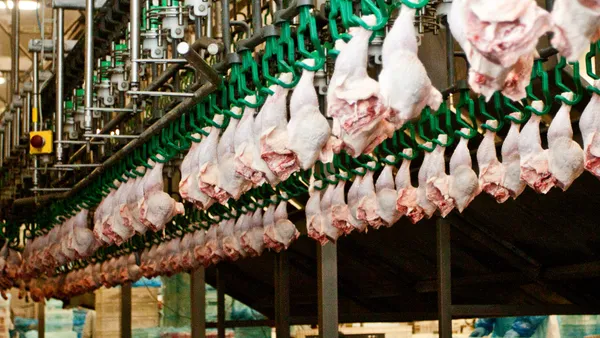House Republicans on Friday released the long-awaited draft of the farm bill, including proposals to reduce spending on food assistance and climate-smart agriculture that Democrats say will not pass a vote.
The 942-page draft bill from House Agriculture Committee Chairman Glenn "GT" Thompson comes more than six months after the expiration of the current farm bill, which funds a range of farm safety net programs and the Supplemental Nutrition Assistance Program. Congress extended the farm bill for one year as the two parties remained at odds on how to allocate limited funding amid a tight budgetary environment.
Thompson's proposal looks to freeze food assistance benefits and reallocate billions of dollars in additional funding earmarked for climate-smart agriculture into traditional conservation programs such as the Environmental Quality Incentives Program.
The draft bill also contains controversial provisions aimed at counteracting the impact of California's animal welfare law Proposition 12 and eliminating the Secretary of Agriculture's discretionary authority in spending excess Commodity Credit Corporation funds.
Rep. David Scott, the top Democrat on the House Agriculture Committee, on Friday said the chairman's proposal "doesn’t provide a path forward to getting a bill passed on the House Floor.”
"The discussion draft released by Chairman Thompson today confirms my worst fears," Scott said in a statement. "House Republicans plan to pay for the farm bill by taking food out of the mouths of America’s hungry children, restricting farmers from receiving the climate-smart conservation funding they so desperately need, and barring the USDA from providing financial assistance to farmers in times of crisis."
Democrats are pushing to pass the farm bill plan from Senate Agriculture Chairwoman Debbie Stabenow, which would keep guardrails for climate-smart funding and keep enhanced food benefits intact. The Senate has released a high-level framework for the plan, but has yet to unveil full draft text.
The House Agriculture Committee is set to consider Thompson's draft May 23.
"The markup is one step in a greater House process, that should not be compromised by misleading arguments, false narratives, or edicts from the Senate," Thompson said in a statement. "I look forward to engaging with colleagues on both sides of the aisle as we move to markup.”











